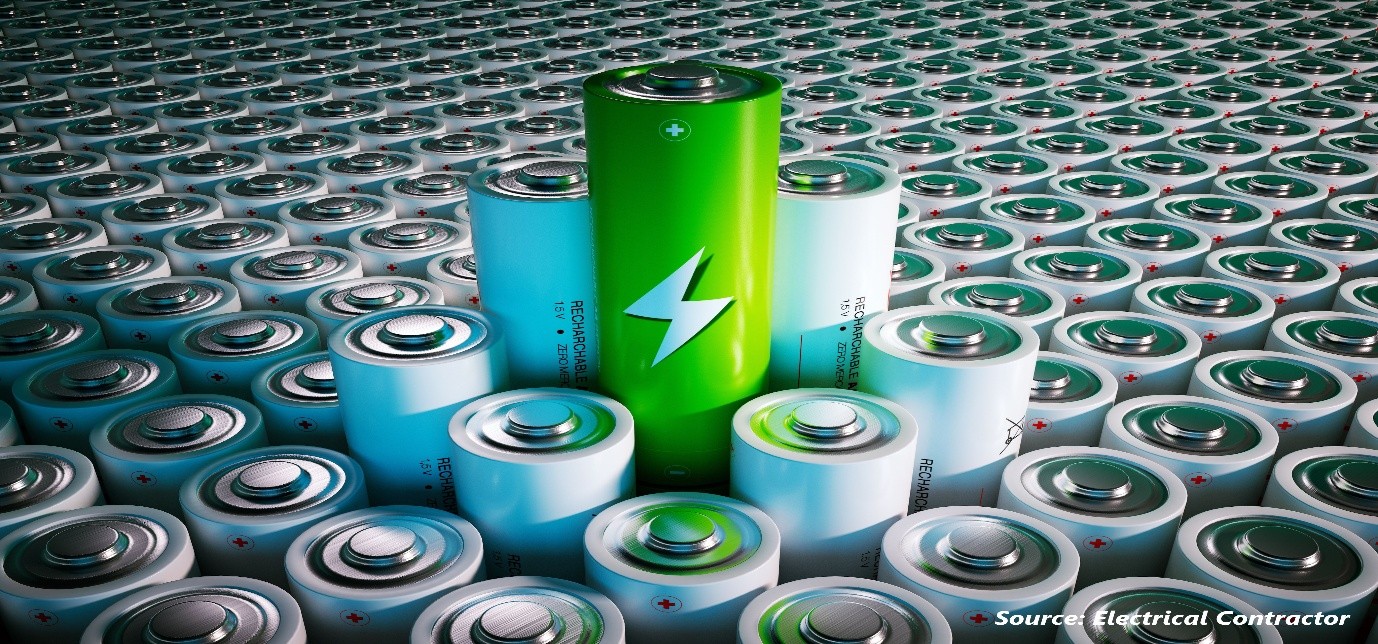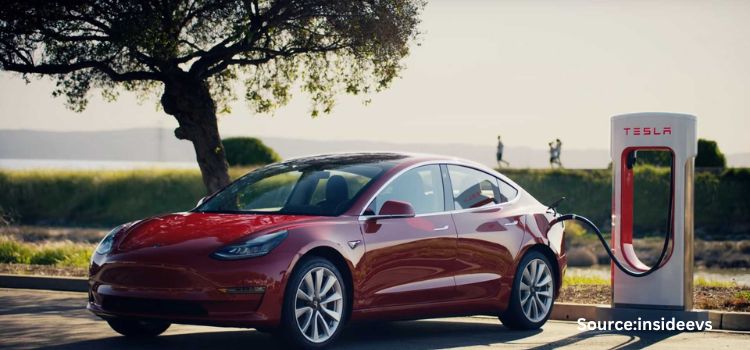
UK Battery Market by Type (Stationary and Motive), by Battery Type (Primary Batteries (Non-rechargeable), and Secondary Batteries (Rechargeable)), by Voltage Type (Low Voltage Batteries (1V - 12V), Medium Voltage Batteries (24V - 100V) and High Voltage Batteries (200V - 1000V)) – Global Opportunity Analysis and Industry Forecast 2023-2030
Industry: Energy & Power | Publish Date: 15-Feb-2025 | No of Pages: 167 | No. of Tables: 129 | No. of Figures: 74 | Format: PDF | Report Code : EP704
US Tariff Impact on UK Battery Market
Trump Tariffs Are Reshaping Global Business
Market Definition
UK Battery Market was valued at USD 3.73 billion in 2022, and is predicted to reach USD 13.96 billion by 2030, with a CAGR of 17.9% from 2023 to 2030.
A battery functions as a reservoir for storing energy which it later releases by converting chemical energy into electrical energy. This process is achieved through the utilization of one or more electrochemical cells. Categorized into primary and secondary types, batteries serve as integral components in our daily lives. Primary batteries, also known as non-rechargeable batteries, offer a straightforward and convenient power source for a wide array of portable devices such as cameras, watches, toys, radios, and lighting equipment. In contrast, secondary batteries, termed rechargeable batteries, possess the capability to be replenished with electrical charge subsequent to their discharge. This distinction underscores the indispensable role batteries play in our modern existence.
UK's Growing Renewable Energy Sector Fuels Energy Storage Expansion and Battery Market Surge
The UK's burgeoning renewable energy domain, complemented by its favorable governmental policies and incentives for Energy Storage Systems (ESS), is catalyzing remarkable growth in the energy storage sector. This expansion, in turn, exerts a positive influence on the battery market. ESS relies significantly on battery technology to stockpile energy efficiently. Among various battery types, lithium-ion batteries are prevalent in ESS due to their exceptional energy storage capacity relative to their size, coupled with the ability to undergo multiple charge and discharge cycles throughout their lifespan.
According to insights from the International Trade Administration, the UK boasts an impressive battery storage capacity of over 16.1 GW. This capacity is distributed across 729 ongoing or operational projects throughout the nation. A prime illustration of this momentum is seen in the December 2020 approval granted to InterGen.
The UK’s Department for Business, Energy and Industrial Strategy (BEIS) authorized InterGen's ambitious battery energy storage endeavor. Situated within the gateway energy center development along the banks of the River Thames in Essex, this lithium-ion battery energy storage project commands a staggering USD 300 million investment. Envisioned to deliver a baseline capacity of 320 MW/640 MWh, the project exhibits potential for expansion to a massive 1.3 GWh. At full charge, it holds the capability to provide power to around 300,000 households for a duration of 2 hours, positioning it as one of the globe's largest energy systems. These compelling factors collectively shape a landscape that is poised to galvanize the battery market within the country.
Rapid Electric Vehicle Adoption Fuels UK Battery Market Growth
The increasing adoption of electric vehicles (EVs) in the UK is indeed a major driver for the battery market, and the government's ban on new gasoline and diesel vehicle sales by 2030 has significantly accelerated this trend. This policy initiative, along with other measures aimed at promoting sustainable transportation, has created a strong motivation for the shift towards EVs, which in turn has led to a surge in demand for batteries.
Safety Concerns Associated with Battery Utilization in UK
Inadequate handling of batteries can pose numerous risks to human well-being and the environment. The improper disposal of used or exhausted batteries is a prevalent practice, resulting in their disposal in landfills where they gradually break down, releasing hazardous substances. Over time, these batteries deteriorate, emitting chemical components that can seep into the soil and have adverse effects on both groundwater and surface water. As a result, this pollution significantly disrupts the ecosystem, jeopardizing aquatic plants and animals that come into contact with harmful battery elements like mercury, cadmium, lithium, and lead. Consequently, these issues are expected to hinder the growth of the battery market in the region.
Introduction of Nano-Diamond Batteries (NDB) in Multiple Industries
The increasing adoption of Nuclear Diamond Batteries (NDBs) across a range of sectors such as automotive, aerospace, and electronics is poised to unlock new opportunities in the UK's battery market. NDBs represent a revolutionary leap in energy generation and storage, fundamentally reshaping the concept of batteries. These batteries exhibit exceptional longevity by tapping into the energy generated from the radioactive decay of nuclear waste. The trajectory of the battery market is being influenced by the compelling features of NDBs, including their compact size, versatility, cost-effectiveness, and scalability across diverse applications, spanning from compact chipsets to large-scale industrial installations. Operating as advanced diamond-based alpha, beta, and neutron voltaic batteries, NDBs provide a continuous supply of clean energy for a wide spectrum of applications, outperforming the capabilities of traditional chemical batteries.
Competitive Landscape
The UK battery industry includes several market players such as LG Chem Ltd., CATL, Samsung SDI Co. Ltd., BYD, SKI, ENVISION AESC GROUP LTD., Gotion High tech Co Ltd, Primearth EV Energy Co., Ltd., China Aviation Lithium Battery Co., Ltd., Panasonic Corporation.
Key Benefits
-
The UK battery market report provides a quantitative analysis of the current market and estimations through 2023-2030 that assists in identifying the prevailing market opportunities to capitalize on.
-
The study comprises a deep dive analysis of the market trend including the current and future trends for depicting the prevalent investment pockets in the market.
-
The information related to key drivers, restraints, and opportunities and their impact on the market is provided in the report.
-
The competitive analysis of the market players along with their market share in the UK battery market.
-
The SWOT analysis and Porter’s Five Forces model are elaborated in the study.
-
Value chain analysis in the market study provides a clear picture of the stakeholders’ roles.
UK Battery Market Key Segments
By Type
-
Stationary
-
Motive
By Battery Type
-
Primary Batteries (Non-rechargeable)
-
Alkaline Batteries
-
Zinc-Carbon Batteries
-
Lithium-Thionyl Chloride Batteries
-
-
Secondary Batteries (Rechargeable)
-
Lead-Acid Batteries
-
Nickel-Cadmium (NiCd) Batteries
-
Nickel-Metal Hydride (NiMH) Batteries
-
Lithium-ion Batteries
-
Lithium Nickel Manganese Cobalt (LI-NMC)
-
Lithium Iron Phosphate (LFP)
-
Lithium Cobalt Oxide (LCO)
-
Lithium Titanate Oxide (LTO)
-
Lithium Manganese Oxide (LMO)
-
Lithium Nickel Cobalt Aluminum Oxide (NCA)
-
- Other Secondary Batteries
-
By Voltage Type
-
Low Voltage Batteries (1V - 12V)
-
Medium Voltage Batteries (24V - 100V)
-
High Voltage Batteries (200V - 1000V)
By Power Capacity
-
Low Capacity Batteries (Up to 1,000 mAh)
-
Medium Capacity Batteries (1,000 mAh to 10,000 mAh)
-
High Capacity Batteries (10,000 mAh to 100,000 mAh)
-
Ultra High Capacity Batteries (More than 100,000 mAh)
By Self-Discharge Rate
-
Low Self-Discharge Rate Batteries
-
Medium Self-Discharge Rate Batteries
-
High Self-Discharge Rate Batteries
By Application
-
Residential
-
Industrial
-
Automotive
-
ICE Engines
-
Passenger vehicles
-
Commercial vehicles
-
-
Electric vehicles
-
E-Bikes
-
E-Cars
-
E-Buses
-
E-Trucks
-
-
-
Medical
-
Telecom & IT
-
Consumer Electronics
-
Power & Utility
-
Aerospace & Defense
-
Marine
-
Other Industries
-
- Commercial
Key Players
-
BYD Company Ltd.
-
Tesla, Inc.
-
Toshiba Corporation
-
Panasonic Corporation
-
Samsung SDI Co. Ltd
-
EnerSys, Inc.
-
Exide Industries Ltd.
-
BMZ Group
-
EVE Energy Co., Ltd.
-
AESC UK Ltd.
-
Nexeon Ltd.
-
TDK UK Limited
-
ZF Friedrichshafen AG
-
Zenobe
-
Ultramax Batteries
REPORT SCOPE AND SEGMENTATION:
|
Parameters |
Details |
|
Market Size in 2022 |
USD 3.73 billion |
|
Revenue Forecast in 2030 |
USD 13.96 billion |
|
Growth Rate |
CAGR of 17.9% from 2023 to 2030 |
|
Analysis Period |
2022–2030 |
|
Base Year Considered |
2022 |
|
Forecast Period |
2023–2030 |
|
Market Size Estimation |
Billion (USD) |
|
Growth Factors |
The growing government incentives The adoption of hybrid vehicles |
|
Companies Profiled |
10 |
|
Market Share |
Available for 10 companies |
|
Customization Scope |
Free customization (equivalent up to 80 working hours of analysts) after purchase. Addition or alteration to country, regional, and segment scope. |
|
Pricing and Purchase Options |
Avail customized purchase options to meet your exact research needs. |

















 Speak to Our Analyst
Speak to Our Analyst





















